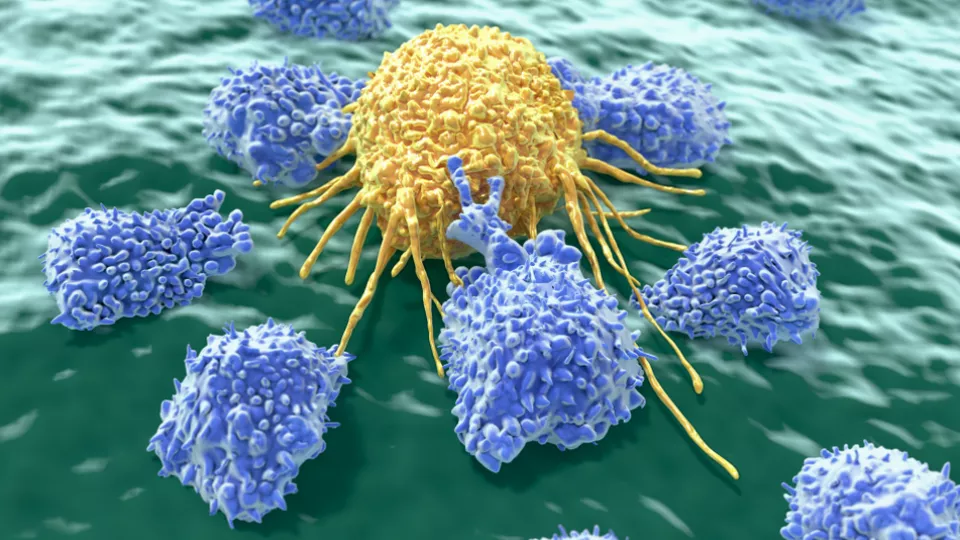Around two billion natural killer cells circulate in our bodies and play an important role in the body's defense against cancer and infection. This has led researchers to believe that natural killer cells can be used in immunotherapy treatment for those same illnesses. Therefore, we need to understand how these anti-cancer cells are first produced from blood stem cells originating in the embryo.
“By taking cells from an adult's tissue - for example a hair follicle or a skin cell - we can reprogram them to an embryonic-like state - so-called iPS cells, induced pluripotent stem cells. Because of the embryonic state, these cells can then develop into different cell types of the body, including blood cells”, says Niels-Bjarne Woods, Associate Professor at Lund University and a corresponding author of the study.
In our system to generate blood cells from iPS cells, the research team found a metabolic switch that can activate the generation of specific blood cell types, and consequently increase the production of natural killer cells.
“In our cells there are mitochondria that function as power plants, where chemical reactions deliver energy for the cells. By feeding the cells differing substances we could impact the energy production and influence which types of blood cells were developed. We performed the studies in the lab first, and then confirmed the result in animals, achieving similar results”, says Niels-Bjarne Woods.
Increased activity in the mitochondria resulted in substantially higher levels of natural killer cells. This shows that metabolism is an important regulator of blood development during the embryonic stage.
“Using metabolic factors, we identified how to control the production of specific blood cells from iPS cells. Weplan to modify the natural killer cells to target and destroy specific cancers. Transplanting genetically modified natural killer cells from iPS cells is the next big hope for anti-cancer therapies”, concludes Niels-Bjarne Woods.“We just made producing natural killer cells more on-demand.”
Publication:
Link to the article in EMBO Reports:
Pyruvate metabolism guides definitive lineage specification during hematopoietic emergence
Link to original article published on 9 February 2022

